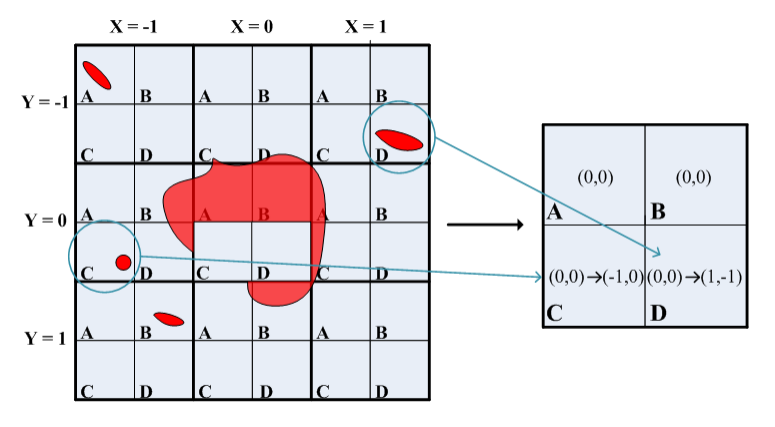Author: WANG Zhichong |
Wavefront reconstruction and correction under strong atmospheric turbulence conditions have become a crucial issue in adaptive optics. An approach based on plenoptic sensor can precisely reconstruct disturbed wavefront under strong atmospheric turbulence. However, the existing reconstruction algorithm has difficulty in reconstructing residual aberrations.
In a study published in IEEE Photonics Journal, Prof. CHEN Tao and his Doctoral student WANG Zhichong from Changchun Institute of Optics, Fine Mechanics and Physics (CIOMP) of the Chinese Academy of Sciences (CAS) proposed a local threshold checkerboard (LTC) algorithm to improve the accuracy of wavefront reconstruction of plenoptic sensor.
The principle of the proposed LTC algorithm is to select the central 3×3 sub-apertures of the plenoptic sensor, and some specific areas of the central sub-aperture are set to 0. With this method, the reconstruction result of the original algorithm was amplified, and the purpose of improving the reconstruction accuracy was achieved.
In order to verify the effectiveness of the proposed LTC algorithm, an experimental platform based on the plenoptic sensor was designed and built. Experimental results showed that a higher wavefront reconstruction accuracy can be obtained with LTC algorithm, and the residual aberration of the incident wavefront is further reduced, demonstrating that a higher wavefront correction accuracy is also obtained with LTC algorithm.
Based on the above findings and experimental results, the plenoptic sensor with LTC algorithm can better reconstruct and correct the residual aberrations, which can meet the application requirements of the adaptive optics system.

Fig.1 Diagram of the checkerboard reconstruction
CHEN Tao
Changchun Institute of Optics, Fine Mechanics and Physics
E-mail: chent@ciomp.ac.cn
